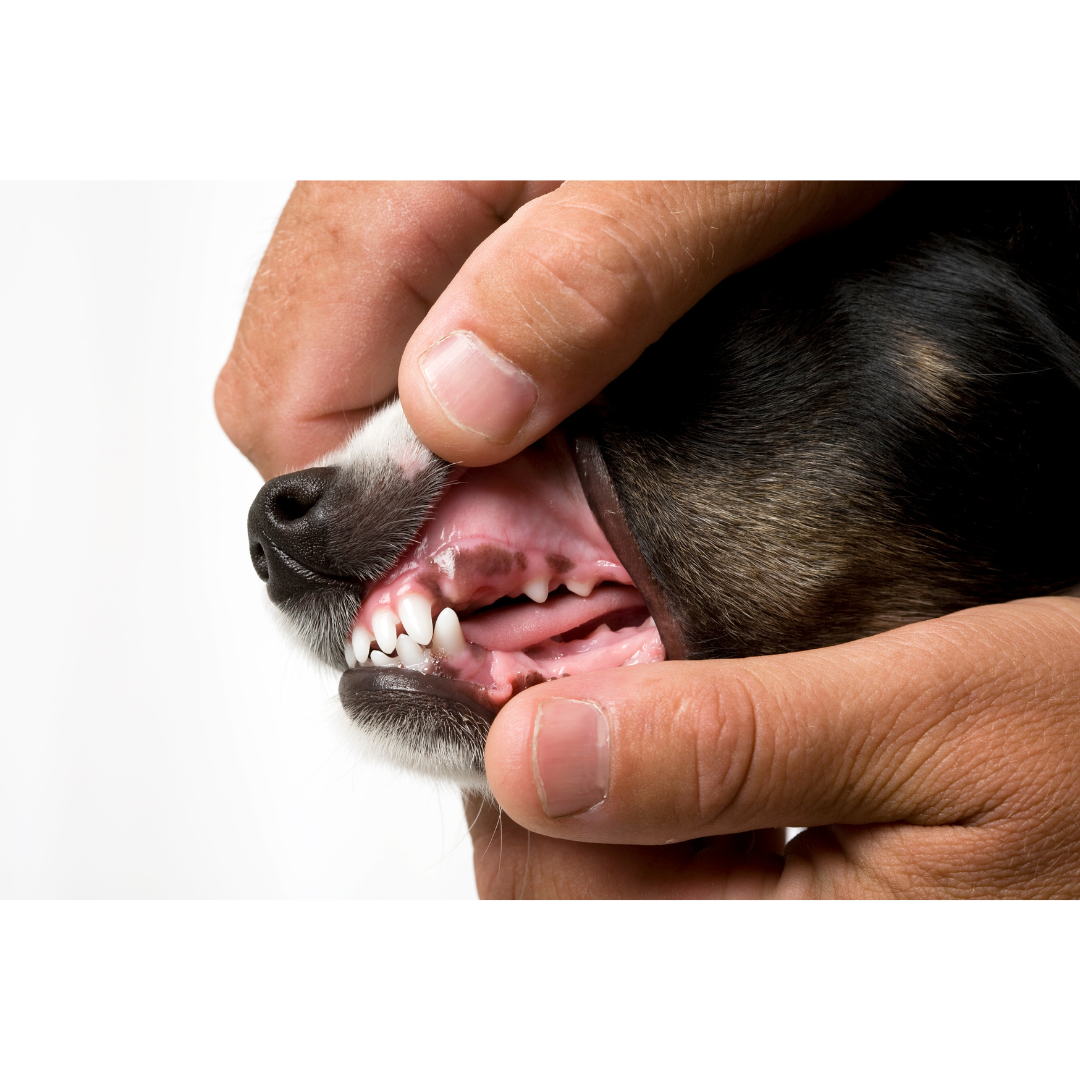
Nurturing Canine Health: Understanding and Addressing Common Health Issues in Dogs
In the intricate dance of companionship between humans and dogs, understanding and addressing the health concerns of our beloved furry friends is paramount.
Dogs, like us, can encounter a variety of health issues that require our attention, care, and empathy.
Let's embark on a journey through some of the most prevalent health challenges faced by our canine companions, exploring each with a compassionate lens and offering practical solutions backed by veterinary expertise.
A. Gum Disease
Gum disease, often underestimated in its significance, can profoundly impact a dog's quality of life.
Comparable to the discomfort humans experience with dental issues, gum disease can cause pain, inflammation, and even tooth loss in our furry companions.
Consider Rover, a vibrant Golden Retriever, whose once exuberant demeanor diminishes as he grapples with gum disease.
His reluctance to engage in activities he once enjoyed, coupled with noticeable redness and swelling in his gums, signals an underlying issue that demands attention.
Poor dental hygiene, tartar buildup, and bacterial infections are common culprits behind gum disease in dogs.
A proactive approach to dental care is essential.
Regular brushing with specialized dog toothpaste and the provision of dental chews can help stave off gum disease.
Additionally, scheduling annual dental check-ups with a trusted veterinarian for professional cleaning ensures thorough maintenance of your dog's oral health.
B. Ear Infections
Ear infections, characterized by discomfort and irritation, can disrupt the equilibrium of our canine companions.
Despite their stoic nature, dogs are not immune to the discomfort caused by these pesky infections, which can arise from various factors, including wax buildup and moisture retention.
Meet Bella, an effervescent Beagle whose vivacity is tempered by incessant scratching and head shaking.
These behaviors, indicative of an underlying ear infection, impede Bella's ability to fully revel in life's simple pleasures.
Ear infections in dogs can stem from moisture accumulation, foreign objects, allergies, or anatomical factors such as floppy ears.
Effective management of ear infections necessitates vigilant hygiene practices.
Regular cleaning of your dog's ears with vet-approved cleansers and ensuring they remain dry can mitigate the risk of infection.
In cases where symptoms persist or worsen, seeking guidance from a veterinarian for appropriate treatment, including prescribed ear drops, is paramount.
C. Obesity
The pervasiveness of obesity in dogs underscores the importance of maintaining a balanced lifestyle for our furry companions.
Beyond aesthetic concerns, obesity can precipitate a myriad of health issues, compromising the overall well-being of our beloved pets.
Consider Max, a genial Labrador whose zest for life is dampened by excess weight gain.
Max's diminished enthusiasm for physical activity and noticeable change in physique underscore the detrimental effects of obesity on his vitality.
Overfeeding, lack of exercise, genetic predispositions, and certain medical conditions can contribute to obesity in dogs.
A holistic approach to weight management is indispensable.
Implementing a regimen of regular exercise, tailored to your dog's breed and physical capabilities, coupled with a nutritionally balanced diet, facilitates healthy weight maintenance.
Additionally, incorporating mentally stimulating activities, such as puzzle toys, enriches your dog's life while promoting overall well-being.
D. Overgrown Nails
Neglecting nail maintenance in dogs can have far-reaching consequences, impeding their mobility and causing discomfort.
Overgrown nails, if left unattended, can affect a dog's gait and predispose them to injuries, underscoring the importance of proactive nail care.
Luna, an elegant Greyhound, whose graceful demeanor belies the discomfort she experiences due to overgrown nails. Luna's audible clicks as she traverses her environment serve as a poignant reminder of the need for attentive nail maintenance.
Inadequate trimming, lack of exercise on abrasive surfaces, and certain medical conditions affecting nail growth can lead to overgrown nails in dogs.
Regular nail trims, utilizing appropriate clippers and techniques, are instrumental in preventing overgrowth and promoting optimal paw health.
For those uncomfortable with performing this task themselves, seeking the assistance of a veterinarian or professional groomer ensures meticulous care and attention to your dog's needs.
E. Anal Sac Impaction
Anal sac impaction, though a topic often met with trepidation, warrants compassionate consideration due to its potential to cause discomfort and distress in our canine companions.
Addressing this issue promptly is essential to safeguarding your dog's well-being and preserving their dignity.
Picture Charlie, a jovial Cocker Spaniel, whose exuberance is overshadowed by the discomfort he experiences from anal sac impaction.
Charlie's conspicuous attempts to alleviate his discomfort, such as scooting across the floor, underscore the urgency of addressing this issue.
Diet, genetics, and inadequate emptying of the anal sacs during bowel movements can contribute to anal sac impaction in dogs.
Seeking professional assistance from a veterinarian for the manual expression of your dog's anal sacs is imperative in alleviating impaction-related discomfort. Additionally, incorporating dietary modifications, such as increasing fiber intake, promotes regularity and minimizes the risk of recurrence.
F. Arthritis
Arthritis is a common condition not only affecting humans but also our beloved canine companions. Dogs, like humans, can suffer from joint pain and inflammation due to arthritis, which can significantly impact their quality of life. Understanding the causes, symptoms, and treatment options for dog arthritis is crucial for ensuring our furry friends live comfortably and happily. In this article, we delve into the world of canine arthritis, providing insights into its various aspects and offering guidance on managing this condition effectively.
What is Dog Arthritis?
Dog arthritis, also known as canine osteoarthritis, is a degenerative joint disease that primarily affects the joints and surrounding tissues. It is characterized by inflammation, pain, stiffness, and reduced mobility in the affected joints. Arthritis can develop in dogs of all ages, but it is more commonly seen in older canines. However, certain factors such as genetics, breed predisposition, obesity, joint injuries, and developmental disorders can increase the risk of arthritis in younger dogs as well.
G. Diarrhea
Dog diarrhea is a common health issue that can cause distress for both dogs and their owners. While it's often not a serious problem, persistent or severe diarrhea can indicate underlying health issues that require attention. Understanding the causes, symptoms, and treatment options for dog diarrhea is essential for maintaining your pet's health and well-being.
As caretakers of our canine companions, it is incumbent upon us to prioritize their health and well-being, approaching each health concern with empathy, diligence, and a commitment to their enduring happiness.
By fostering a partnership grounded in understanding and mutual care, we can navigate the complexities of canine health with grace and resilience, ensuring our beloved furry friends lead lives replete with vitality and joy.
Love you canine companion more and show affection creatively.
Visit our shop for our awesome pet inspired graphic t-shirt collection wear it proudly and let the world know just how much your furry friend means to you.
Disclaimer: This article is intended for informational purposes only. It is not meant to substitute for medical advice or diagnosis provided by your veterinarian. If your dog shows symptoms, please consult your veterinarian immediately.



Leave a comment
This site is protected by hCaptcha and the hCaptcha Privacy Policy and Terms of Service apply.